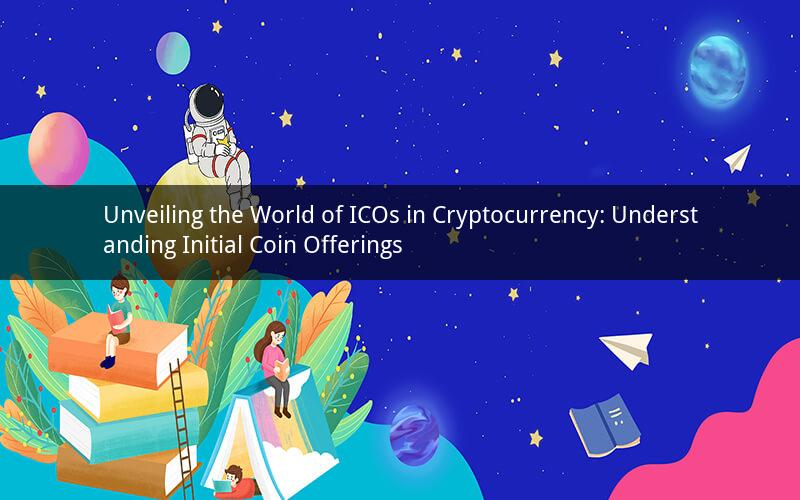
Introduction:
In the rapidly evolving landscape of cryptocurrency, the term "ICO" has become a buzzword among investors and enthusiasts. But what exactly is an ICO? This article delves into the intricacies of Initial Coin Offerings, exploring their significance, benefits, risks, and the potential future of this unique fundraising method.
1. What is an ICO?
An Initial Coin Offering (ICO) is a fundraising mechanism where a cryptocurrency project offers its native digital tokens to the public in exchange for various forms of payment, predominantly in Bitcoin, Ethereum, or other altcoins. It is a way for startups and companies to raise capital without relying on traditional investment channels like venture capital or bank loans.
2. How does an ICO work?
The process of an ICO involves several stages:
a. Whitepaper: The project releases a comprehensive whitepaper that outlines its vision, technology, tokenomics, and the problem it aims to solve. This document is crucial for potential investors to understand the project's fundamentals.
b. Pre-ICO: In some cases, a project may conduct a pre-ICO phase, allowing early investors to purchase tokens at a discounted rate. This stage helps the project generate initial capital and gauge market interest.
c. ICO Launch: The main ICO phase begins, during which the project offers its tokens to the public. Investors can purchase tokens using cryptocurrencies or fiat money, depending on the project's policy.
d. Token Distribution: After the ICO, the project distributes the tokens to the investors based on their contribution. The tokens are usually locked for a specific period, known as the vesting period, to prevent excessive selling and manipulation of the market.
3. Benefits of ICOs
ICOs offer several benefits for both startups and investors:
a. Rapid Capital Raising: ICOs enable startups to raise substantial capital in a short period, which can be used for product development, marketing, and other business needs.
b. Decentralization: Unlike traditional crowdfunding methods, ICOs are decentralized, allowing projects to reach a global audience without relying on intermediaries.
c. Community Building: ICOs foster a sense of community among investors and stakeholders, as they share a common interest in the project's success.
4. Risks of ICOs
Despite the numerous benefits, ICOs come with several risks:
a. High Volatility: Cryptocurrency markets are known for their extreme volatility, which can lead to significant losses for investors.
b. Regulatory Uncertainty: The regulatory landscape surrounding ICOs is still evolving, making it challenging for startups to navigate the legal complexities.
c. Project Failures: Many ICOs have failed due to various reasons, such as lack of execution, fraudulent activities, or a poorly designed product.
5. The Future of ICOs
The future of ICOs remains uncertain, but several trends are shaping the landscape:
a. Regulatory Framework: Governments worldwide are increasingly focusing on regulating the ICO market to protect investors and prevent fraudulent activities.
b. Shift Towards Security Tokens: Some projects are transitioning from utility tokens to security tokens, which offer more legal and regulatory clarity.
c. Enhanced Due Diligence: Investors are becoming more cautious and conducting thorough due diligence before participating in ICOs.
FAQs:
1. What is the difference between an ICO and an IPO?
An Initial Coin Offering (ICO) is a fundraising mechanism for cryptocurrency projects, while an Initial Public Offering (IPO) is a process by which a company offers its shares to the public for the first time.
2. Can I participate in an ICO without any technical knowledge?
Yes, you can participate in an ICO even without technical knowledge. However, it is crucial to research the project and understand its whitepaper before investing.
3. Are ICOs legal in all countries?
ICO regulations vary by country. It is essential to check the legal status of ICOs in your jurisdiction before participating.
4. Can I sell my ICO tokens immediately after the ICO?
The ability to sell ICO tokens immediately after the ICO depends on the project's terms and conditions. Some projects may lock tokens for a specific period to prevent excessive selling and manipulation of the market.
5. How can I identify a fraudulent ICO?
To identify a fraudulent ICO, research the project's team, whitepaper, and background. Be wary of projects with anonymous teams, lack of a clear business model, or promises of unrealistic returns.